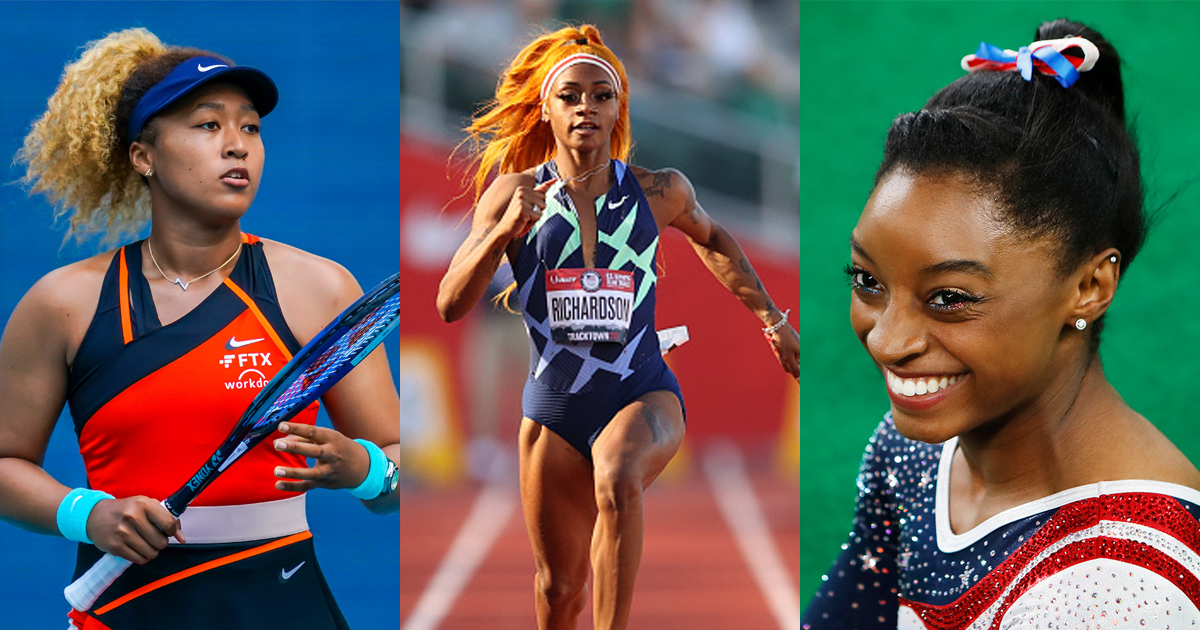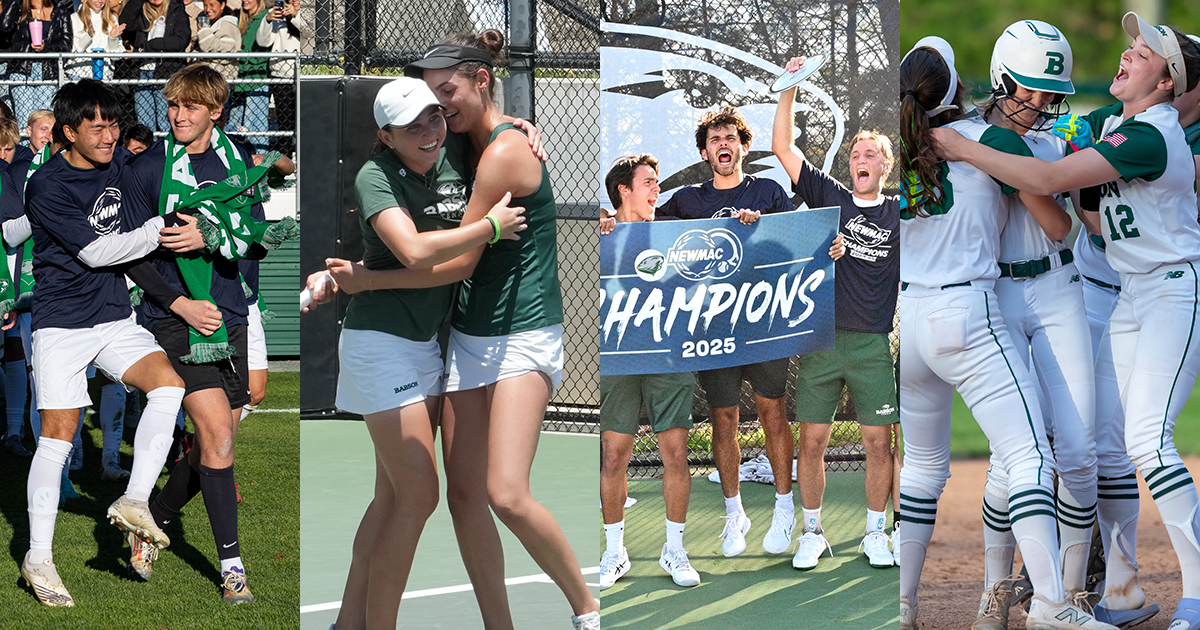How Social Media Responds When Black Female Athletes Prioritize Mental Health

Despite an initial surge of sympathy, top female athletes of color continue to face backlash for opting out of high-profile competitions to protect their psychological health, research from Babson College faculty suggests.
Nada Hashmi, assistant professor of information systems at Babson, and her co-authors—Anjali Bal, associate professor of marketing at Babson, and Nam Nguyen MSBA’22, a strategic data analyst at Babson—analyzed more than 3 million tweets about world-class athletes Simone Biles, Naomi Osaka, and Sha’Carri Richardson. Their research focuses on the ongoing stigma of mental illness—especially for female athletes of color—amid a growing public awareness that mental health is integral to a person’s overall health and well-being.
“There is an increase in support and compassion on the first day,” Hashmi said. “But, overall there doesn’t appear to be a lot of understanding, which is really concerning.”
The study, Hashmi contends, is a rare scholarly look at Black female athletes facing a mental health crisis, and how social media and society responds to them during that crisis.
“I really wanted to look at the question of whether the system and society view mental health differently based on race and gender,” Hashmi said.
Growing Awareness
The idea for the study came during the COVID-19 pandemic. Hashmi and Bal, who is also an inaugural Babson Presidential Research Scholar, noticed an increase in public discussions about depression and anxiety, and a growing acceptance that mental health is just as important as physical health.
“I started to notice a huge spike in mental health awareness,” Hashmi said. “People were not only talking about it, they were also experiencing some of these issues themselves.”
The global prevalence of anxiety and depression increased by 25% in the first year of the COVID-19 pandemic alone, according to a brief recently released by the World Health Organization.

Hashmi was able to establish that social media sites, such as Instagram and Twitter, have become supportive locations to disclose mental health conditions or other personal struggles. However, athletes overall continue to experience a heightened level of expectations surrounding competitions.
“Athletes often face additional scrutiny during competitions,” Hashmi said. “They’re expected to just tough it out and keep competing no matter what life throws at them.”
Hashmi and her co-authors found three perfect test cases with Biles, Osaka, and Richardson. During a sixth-month period in 2021, the Olympic gold-medal-winning gymnast Biles, four-time Grand Slam tennis champion Osaka, and Olympic track and field sprinter Richardson didn’t compete in high-profile competitions. All three athletes pointed to issues with their psychological health as the main reason for their absence.
“We had a lot of interplay going on between the expectations for athletes and sympathy for those with a mental illness, and we wanted to see how the reactions would play out,” Hashmi said.
Remaining Questions
Hashmi extracted 3.56 million tweets about Biles, Osaka, and Richardson, starting when the athletes opened an official Twitter account. The professor identified the athletes’ supporters, detractors, and neutral tweets, which Hashmi labeled as “onlookers.”

She and her team then reviewed tweets for sentiment over a period starting two weeks before the athletes’ made their announcement to two weeks after, calculating the daily mean sentiment expressed by those on Twitter.
The overall sentiment about Biles, for example, increased by roughly .1% on July 28, 2021, the day she decided to withdraw from the all-around gymnastics competition during the 2021 Summer Olympics in Tokyo.
“It’s been a long week, it’s been a long Olympic process, it’s been a long year. So just a lot of different variables, and I think we’re just a little bit too stressed out,” Biles told reporters when asked about her decision.
Osaka, who withdrew from the French Open in 2021 after officials ruled that she couldn’t skip the post-match press conference, also saw a surge in supportive tweets.
“I think now the best thing for the tournament, the other players and my well-being is that I withdraw so that everyone can get back to focusing on the tennis going on in Paris,” Osaka wrote in an Instagram post. She shared her struggles with depression and anxiety in the same post.
The mean sentiment of tweets in the 24 hours surrounding Osaka’s announcement went from roughly .25% positive to .5%, the study showed. That positivity eroded, however, in the two weeks after the athletes’ announcements.
“There is an increase in support and compassion on the first day. But, overall there doesn’t appear to be a lot of understanding, which is really concerning.”
Nada Hashmi, assistant professor of information systems
“On the day they announce their decision, there are a lot of supportive tweets,” Hashmi said. “People are tweeting things like, ‘We support you,’ or ‘You’re doing the right thing,’ but a week or so later, they start questioning the decision.”
Hashmi, who hasn’t completed her study, said she plans to further explore the public questioning period. Most importantly, she wants to see if Black female athletes face harsher scrutiny than white female or male athletes. Current studies indicate that women of color face a phenomenon called “double jeopardy” in the workplace, meaning they face harsher punishments for a mistake than a white female or a Black male employee.
“I want to look at the reactions to white female athletes facing similar struggles, and ideally I want to compare white male athletes as well,” Hashmi said.
Posted in Insights





